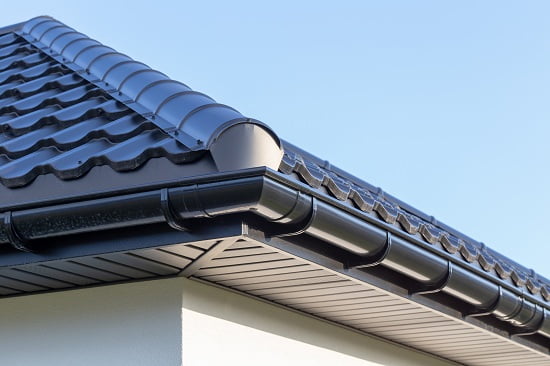From an outside perspective, commercial gutter systems seem exactly alike with those in residential properties. Both have similarities in such a way that they operate in pretty much the same way: Water that flows from the roof goes through the gutter trough. Then it moves into the downspouts where the water direction is diverted away from the building.
But apart from the fact that both are installed in different kinds of buildings, there are other differences that have to be highlighted so you know which one to get for your property. Being aware of the differences of either gutter is crucial in how you get the right fit guttering for the property that you have. This choice has to be made accurately—with the expert advice of your contractors, of course. Otherwise, when you choose the wrong one, your gutter may not be able to serve its intended purpose on your property.
That said, how does a commercial gutter system differ from a residential one? This article gives you a breakdown.
Gutter Material
The first main difference between residential and commercial buildings is the gutter material. There’s no one size-fits-all approach to this, as the material choice will also depend on the client. But these are the common materials usually favored for specific gutter types:
- Copper: This is mostly used in residential properties where homeowners would like to have a gutter that’s also stylish to match their home’s façade and exterior. Because it’s one of the most expensive materials to use for gutters, it’s also one of the least selected. It’s also even rarer for commercial buildings, as contractors and building owners would rather prefer for other more practical options.
- Aluminum: Overall, this is one of the most popular gutter materials, both for residential and commercial properties. It has a wider variety of colors and is also one of the cheapest materials.
- Vinyl: While there are still some building owners who choose vinyl, it’s unanimously one of the rarest choices, both for residential and commercial gutters.
- Galvanized steel. Because of it has a longer life expectancy and better strength, galvanized steel is more common on commercial buildings than it is on residential homes.
Gutter Size
The next difference between residential and commercial gutters is the size. Because commercial spaces are almost always larger than residential properties, it also follows that the roof of commercial properties is bigger. In effect, commercial properties will also require a slightly bigger and longer gutter than a residential one would.
On average, gutters would be anywhere between four and six inches. Most commercial buildings, however, will have at the very least six-inch gutters.
Building Code
Another obvious difference between residential and commercial buildings is that both are respectively subject to different codes and regulations. Also, the building codes would also differ depending on the state and countries where your home and commercial building is located. Because both types of gutters are subject to different building codes, this means that each will have their own standards.

Design
Design-wise, residential and commercial gutters are also going to be different. With residential properties, homeowners, engineers, and even architects play around more with the gutter design. When it comes to commercial buildings, however, the gutter design would be more straightforward.
For instance, roofs in private homes tend to have a peaked design. This means that residential gutters are designed to be installed around the roof’s edges. Because commercial buildings usually have flatter roofs, this means that commercial gutters are also designed to be the perfect fit for flat roofs.
With the design, this also means that the aesthetics differ. The design for commercial buildings usually have bulkier-looking gutters, albeit simpler. For residential homes, on the other hand, it’ll be less bulky, so it doesn’t look like a nuisance on a smaller structure.
Scale
Because residential properties are smaller, it means they also have smaller roofs. With smaller roofs, there’d be lesser rain runoff. This means the downspout doesn’t have to be as big and bulky as it would be for commercial buildings. With commercial properties, gutters need to have the capacity to handle the volume of water that comes with bigger roofs.
Conclusion
The key takeaway here is that whatever type of gutter you need, the most important deciding factor is always to place your choice in the hands of expert contractors. Otherwise, with the wrong contractor, you’d end up with the wrong type of gutter for your needs. In the long run, this will only make your gutter undependable where you’ll always have to spend money for costly repairs. Now that you know how different both gutters are, you can choose the gutter your property needs.




























